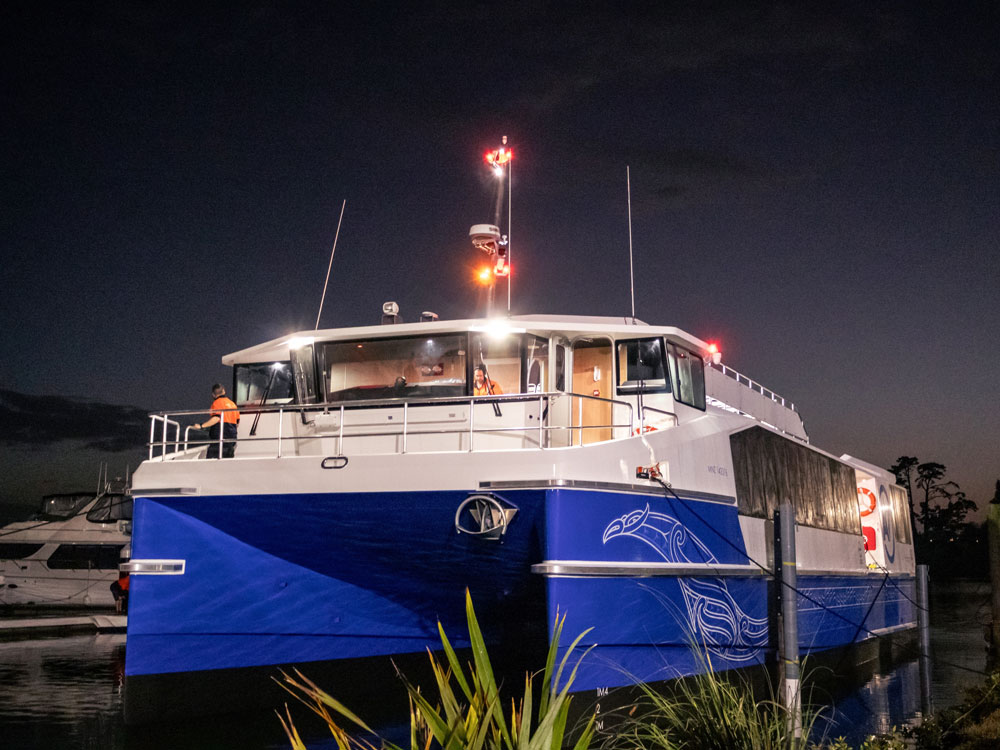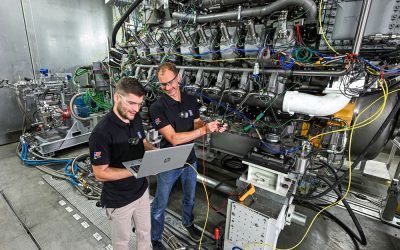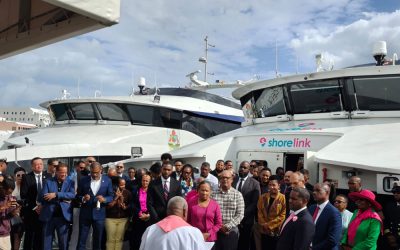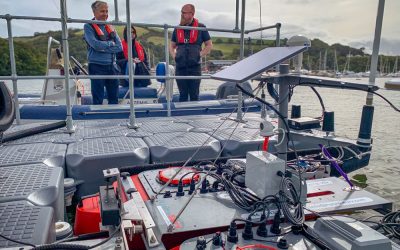New Zealand-based electric ferry designer EV Maritime has announced the launch of its first pure-battery urban ferry, the EVM200. Developed with support from the New Zealand Government for operation by Auckland Transport, the 24m-long EVM200 will provide a passenger service between downtown Auckland and the suburb of Half Moon Bay, spanning 16km. The debutante is the first of two vessels in this class, each being capable of a service speed of up to 25knots and a range of up to 32km.
According to EV Maritime, diesel-powered ferries undertake approximately 6 million passenger journeys in Auckland annually, guzzling 13 million litres of fuel and emitting 34,000tonnes of CO2. The roll-out of the EVM200 models is intended to correct this pollution, while simultaneously “maintaining the reliability and convenience of water-based public transport”, says EV Maritime CEO Michael Eaglen. He adds: “Our technology-transfer business model also supports local shipbuilders in becoming electric vessel manufacturers – boosting regional capability and growing confidence in sustainable solutions.”
Each vessel accommodates up to 200 passengers on the enclosed main deck, while the upper deck offers additional seating for 30 people. EV Maritime adds: “Amenities include three restrooms – one of which is ADA-accessible – and a small onboard kiosk serving barista coffee, cold beer and wine.” Each ferry can also carry up to 20 bikes and scooters in an enclosed area with racks.
The ferry type’s naval architecture and design was led by EV Maritime, with Finland’s Danfoss providing the motors and power electronics and compatriot tech specialist HamiltonJet supplying the boat’s four LTX-model waterjets. For this project, EV Maritime also collaborated with the Auckland-based competitive sailing team Emirates Team New Zealand on the hull, developing a “low-drag, low-wash” hullform for efficient operation at cruising speeds, EV Maritime says. The hull has been built from carbon-fibre composite, with McMullen & Wing handling ship construction duties.
The debut EVM200 vessel also features the first maritime deployment of the CharIN Megawatt Charging System (MCS), a fast-charging solution that has previously been used to power electric trucks and buses. The system can reportedly deliver up to 3.75MW of power, significantly reducing charging times for large battery packs to 15-20 minutes in some cases.
EV Maritime comments: “The journey between downtown Auckland and Half Moon Bay takes approximately 35 minutes. While the ferry’s batteries hold enough energy for a full round trip, the vessel will typically recharge during a 10-minute turnaround at the terminal [at Half Moon Bay], using two MCS inlets rated 1.1MW each.” This shoreside power upgrade has also been overseen by Auckland Transport.
Looking beyond its borders, EV Maritime says it is expanding internationally and that more electric ferry launches are in the pipeline. For example, the company established a North American branch in 2024, and is currently working on a plug-in hybrid-electric vessel for Angel Island Tiburon Ferry, for operations in the San Francisco Bay Area. This project is being funded by the California Air Resources Board (CARB) to the tune of US$12 million, and the vessel, scheduled for launch in Q1 2027, will feature a length of approximately 20m. Additionally, the operator intends to retrofit two of its existing ferries with electric motors in early 2026.
EV Maritime is also working with Canadian boatbuilder AF Theriault to deliver up to five all-electric ferries to Halifax Regional Municipality, in a contract valued at just under US$190 million. These newbuilds, which will operate in Nova Scotia, are slated for completion between 2027-2028.




